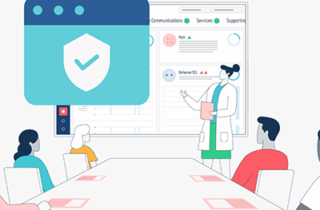edWeb announces the launch of the edWeb Voice, a new publication featuring the voices of education leaders on important topics in education.
What does it take for a school district to become an award winner? In the case of Corpus Christi Independent School District (CCISD), it was narrowing the digital access gap, landing it CoSN’s Community Leadership Award for Digital Equity.
Technology equity has evolved over the years, and we must be open to the needs of tomorrow, next year, and five years down the road.
Transitioning to an effective and equitable literacy program requires more than just adopting a new curriculum. As early literacy consultant and coach Rebecca Miles explained during the edLeader Panel, “The Simple View of Educational Success: Lessons from the Field,” her own “transformative story” as an educator illustrates the range of changes that schools and districts need to make in order to meet the needs of their full range of learners.
Presented by Rebecca Miles, Early Literacy Consultant/Coach Coordinator, Berrien RESA
Moderated by Terrie Noland, Ph.D., CALP, Vice President, Educator Initiatives, Learning Ally
Keep these tips top of mind during your edtech search: Just because tools are pretty doesn’t mean they correlate to academic achievement. Student engagement with a product does not equal learning. Research should inform any edtech selection.
The effects of the pandemic are continuing to impact students’ school attendance and academic progress, complicating long-standing challenges and creating new ones, but school district officials are continuing to respond with innovative approaches that can help students overcome current difficulties and resume their academic progress.
Presented by Timeri Tolnay, CEO, EdCuration
Moderated by Kristi Hemingway, Director of Programs, EdCuration
Social-emotional learning (SEL) and technology might not seem like natural partners. But, according to the presenters in the edWebinar, “Social-Emotional Learning: Leveraging Technology to Care for All,” sponsored by ClassLink and co-hosted by CoSN and AASA, technology is an essential part of their programs. During the presentation, the speakers explained the role technology plays in supporting SEL initiatives.
The growing concerns about security among families, school systems, and legislature increased teacher and student reliance on internet accessibility. As a result, school cybersecurity is subject to more scrutiny than ever. Yet, alarmingly, many school systems are not sufficiently aggressive in getting ahead of cybersecurity. In a recent edWebinar, sponsored by ClassLink and co-hosted by CoSN and AASA, three district superintendents discussed the impact a district cyberattack has on school communities and strategies to mitigate future attacks.










